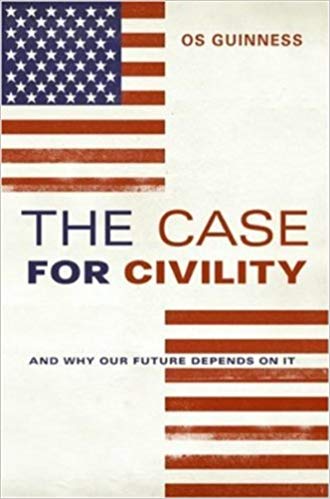In the current cultural and political milieu of our country, I’ve found myself drawn to several books related to our current cultural moment and to our response as Christians living in this climate. So far, Ben Sasse’s book, The Vanishing American Adult (which, apparently, I never wrote a review for) is my favorite and I believe one of the most important books published in our country in the last several years. But Sasse’s book isn’t the only one. Hillbilly Elegy helps to explain the mess we are in from a different cultural lens. Rod Dreher offers suggestions for how we, as Christians, should hunker down and hang on for what he sees as the coming dark ages, and Bruce Ashford has written Letters to an American Christian.
There are other books available, some of which are on my desk right now, and all offer a unique perspective on our contemporary American culture and our opportunity as citizens and Christians to engage. With all of this in mind, I scrolled through amazon recently and purchased a few other books to help me contemplate our culture and decided that Os Guinness’ book, The Case for Civility would be a great option. Guinness has always appealed to me as an excellent scholar and a man with a keen ability to understand our culture–and he’s witty which makes his reading enjoyable as well as informative.
When I placed my order, I admit, I did it haphazardly and so was surprised upon receiving Guinness’ book that it was published in 2008. Ten years ago. I laughed and almost pushed the book aside. Ten years ago our political and cultural conversation seems almost utopian compared with the lack of civility that visits with many arguments today.
But, I had already spent the money to buy a used book so, I read it anyway.
What I discovered is that a book published during the end of George W. Bush’s presidency is incredibly prescient for America today. Guinness saw with clear eyes what was on the horizon of our country and he issues a clarion call for America to wake up.
Guinness argues that the crux of American civilization is built on the freedom of speech and the free-exercise of religion. He argues that when the free-exercise of religion is lost, then freedom is lost and civilization crumbles into an uncivil and unceasing argument.
Without guarantees for the free-exercise of religion, toleration is the only right that exists, but the language of toleration is no freedom at all.
Toleration is too condescending and uncertain. It is the gesture of the strong toward the weak, the government toward the citizenry, and the majority toward the minority. Free exercise, by contrast, is inalienable because it is the inalienable right of everyone, the minority no less than the majority, the weak as well as the poor, and the citizens just as much as the government.
But tolerance isn’t the only impediment to freedom,
Christians lose their independence when they engage in politics in a way that allows their faith to become subservient to politics and its priorities and procedures. Christians have already lost their independence when they attempt to find political solutions for problems that are essentially cultural and pre-political–in other words, when they ask politics to do what politics cannot do.
Politics is always down-stream of culture. If Christians long to see cultural change in American, we must not sell our souls to political parties or candidates who can never do what we have been called to do through the Great Commission. Politics will not change people, but when enough people are changed, politics will be changed.
Guinness, a British citizen, longs to see America be America–the land of the free and the home of the brave where citizens engage one another in civil conversation and discourse. America has never been the place where everyone agreed, instead, it has always been the place where even those who disagreed were allowed to speak freely and engage in the public square.
Our public square has become the place of talking heads, screaming ideologues, and bombastic, arrogant politicians. Unfortunately, Christians have followed suit.
I pray, with Guinness, that we find civility in our culture again, and I pray that civility begins in God’s church.
Guinness’s book is a great read, and at ten years old, you will discover that he has proven himself prophetic in many ways.


